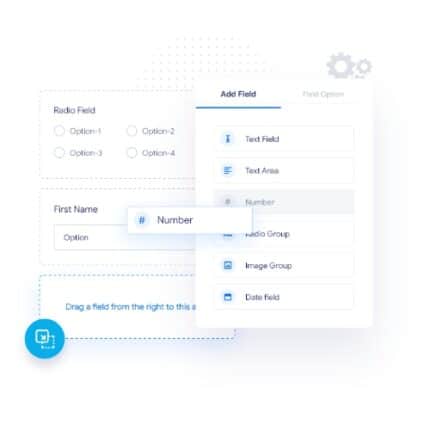Blog
Understanding Microsoft’s Framework for Responsible AI Development
As artificial intelligence continues to revolutionize various sectors, ensuring its responsible and ethical development has become paramount. Microsoft has taken a proactive stance in this regard, devising a robust framework aimed at guiding organizations and developers in building AI systems that prioritize ethical considerations. This blog post delves into the principles that underpin Microsoft’s framework, its applications, and the broader implications for the AI landscape.
The Need for Responsible AI
With the rapid advancement of AI technologies, the potential for misuse or unintended consequences has escalated. Issues such as bias, privacy violations, and lack of transparency raise critical questions about the ethical implications of AI systems. As a leader in technology innovation, Microsoft recognizes that addressing these concerns is essential for gaining public trust and ensuring beneficial outcomes for society.
Key Principles of Microsoft’s Responsible AI Framework
Microsoft’s framework is built upon six fundamental principles designed to promote fairness, reliability, privacy, and accountability in AI applications.
1. Fairness
Fairness in AI involves ensuring that systems do not inadvertently reinforce existing biases. Microsoft emphasizes the importance of rigorous testing and validation processes to identify and mitigate bias within AI models. This principle is pivotal in developing applications that serve diverse communities equitably.
2. Reliability and Safety
AI systems should operate consistently and safely across various scenarios. Microsoft advocates for extensive testing under real-world conditions to ensure AI systems can perform reliably, minimizing risks associated with failures. This principle emphasizes the need to create safeguards and monitoring systems that maintain operational integrity.
3. Privacy and Security
In today’s data-driven landscape, protecting user data is crucial. Microsoft’s framework underscores the importance of robust data management practices, ensuring that personal information is handled responsibly and securely. This involves implementing encryption, access controls, and data anonymization techniques to safeguard user privacy.
4. Inclusiveness
AI technology should be accessible and beneficial to all individuals, irrespective of their background. Microsoft advocates for inclusiveness by promoting the development of tools that cater to various user needs. Engaging diverse teams during the development phase can help address a wider array of perspectives and improve system design.
5. Transparency
Transparency in AI systems fosters trust and understanding among users. Microsoft encourages developers to create explainable AI models that allow users to comprehend how decisions are made. By providing clear documentation and insights into the workings of AI systems, stakeholders can gain the necessary knowledge to evaluate their functionalities critically.
6. Accountability
Accountability ensures that developers and organizations remain responsible for the consequences of AI systems. Microsoft’s framework calls for well-defined governance structures that establish oversight and address any ethical dilemmas that may arise. Developers should be prepared to acknowledge and rectify issues as they occur, fostering a culture of responsibility in AI design and deployment.
Implementing the Framework in AI Development
To effectively incorporate Microsoft’s responsible AI principles, organizations should take a systematic approach. Here are some key steps to consider:
Conduct a Thorough Assessment
Before embarking on an AI project, organizations should conduct comprehensive assessments to identify potential ethical risks. This entails evaluating data sources, testing for bias, and analyzing system designs for inclusivity and transparency. Such assessments can help inform decision-making processes and guide development.
Engage Stakeholders
Collaborating with various stakeholders, including users, ethicists, and data scientists, is crucial for ensuring diverse perspectives are integrated into the development process. Engaging these parties can lead to better identification of ethical concerns and facilitate the creation of more robust and responsible AI systems.
Promote Continuous Learning
AI is an evolving field, and staying abreast of best practices, emerging technologies, and ethical frameworks is essential. Organizations should invest in ongoing training programs for their teams to foster a culture of continuous improvement. This commitment to learning enables teams to adapt to challenges as they arise.
Establish Governance Structures
Having a clear governance framework in place is vital for ensuring accountability. Organizations should create oversight committees tasked with monitoring AI projects and addressing ethical concerns. Regular reviews of AI systems can help identify potential issues early on and ensure compliance with ethical standards.
The Role of Regulation and Standards
As AI technologies become more pervasive, the need for regulatory frameworks and standards becomes increasingly evident. Microsoft actively participates in discussions around governance and ethical guidelines at both national and international levels. Creating cohesive standards can aid organizations in navigating the complexities of responsible AI development.
The Broader Implications for Society
Microsoft’s responsible AI framework serves not only as a guiding model for developers but also as a call to action for the entire tech industry. The principles outlined in the framework have far-reaching implications that extend beyond organizational practices:
-
Trust in Technology: By committing to ethical AI development, organizations can instill greater trust in technology among users. This trust is crucial for fostering long-term relationships and the adoption of AI solutions in various sectors.
-
Encouraging Innovation: Ethical considerations do not stifle innovation; rather, they can drive the meaningful development of AI solutions that address societal challenges. Organizations focusing on responsible practices may unlock new opportunities for innovation.
- Influencing Policy: As tech giants like Microsoft take the lead in responsible AI development, they contribute to shaping public policy and regulatory frameworks that promote ethical standards across the industry. This influence can facilitate a safer, more equitable AI landscape.
Conclusion
Microsoft’s framework for responsible AI development is a critical step toward ensuring that AI systems serve humanity positively and equitably. By adhering to principles such as fairness, reliability, privacy, inclusiveness, transparency, and accountability, organizations can foster trust and drive innovation in the rapidly evolving field of artificial intelligence. As stakeholders across industries embrace these practices, we can collectively pave the way for a future where AI technologies positively impact society.
Elementor Pro
In stock
PixelYourSite Pro
In stock
Rank Math Pro
In stock
Related posts
Building a WordPress Plugin | Jon learns to code with AI
How to add custom Javascript code to WordPress website
6 Best FREE WordPress Contact Form Plugins In 2025!
Solve Puzzles to Silence Alarms and Boost Alertness
Conheça AI do WordPress para construção de sites
WordPress vs Shopify: The Ultimate Comparison for Online Store Owners | Shopify Tutorial
Apple Ends iCloud Support for iOS 10, macOS Sierra on Sept 15, 2025
How to Speed up WordPress Website using AI 🔥(RapidLoad AI Plugin Review)
Bringing AI Agents Into Any UI: The AG-UI Protocol for Real-Time, Structured Agent–Frontend Streams
Web Hosting vs WordPress Web Hosting | The Difference May Break Your Site
Google Lays Off 200+ AI Contractors Amid Unionization Disputes
MIT’s LEGO: A Compiler for AI Chips that Auto-Generates Fast, Efficient Spatial Accelerators
Products
-
 Rayzi : Live streaming, PK Battel, Multi Live, Voice Chat Room, Beauty Filter with Admin Panel
Rayzi : Live streaming, PK Battel, Multi Live, Voice Chat Room, Beauty Filter with Admin Panel
$98.40Original price was: $98.40.$34.44Current price is: $34.44.In stock
-
 Team Showcase – WordPress Plugin
Team Showcase – WordPress Plugin
$53.71Original price was: $53.71.$4.02Current price is: $4.02.In stock
-
 ChatBot for WooCommerce – Retargeting, Exit Intent, Abandoned Cart, Facebook Live Chat – WoowBot
ChatBot for WooCommerce – Retargeting, Exit Intent, Abandoned Cart, Facebook Live Chat – WoowBot
$53.71Original price was: $53.71.$4.02Current price is: $4.02.In stock
-
 FOX – Currency Switcher Professional for WooCommerce
FOX – Currency Switcher Professional for WooCommerce
$41.00Original price was: $41.00.$4.02Current price is: $4.02.In stock
-
 WooCommerce Attach Me!
WooCommerce Attach Me!
$41.00Original price was: $41.00.$4.02Current price is: $4.02.In stock
-
 Magic Post Thumbnail Pro
Magic Post Thumbnail Pro
$53.71Original price was: $53.71.$3.69Current price is: $3.69.In stock
-
 Bus Ticket Booking with Seat Reservation PRO
Bus Ticket Booking with Seat Reservation PRO
$53.71Original price was: $53.71.$4.02Current price is: $4.02.In stock
-
 GiveWP + Addons
GiveWP + Addons
$53.71Original price was: $53.71.$3.85Current price is: $3.85.In stock
-
 JetBlog – Blogging Package for Elementor Page Builder
JetBlog – Blogging Package for Elementor Page Builder
$53.71Original price was: $53.71.$4.02Current price is: $4.02.In stock
-
 ACF Views Pro
ACF Views Pro
$62.73Original price was: $62.73.$3.94Current price is: $3.94.In stock
-
 Kadence Theme Pro
Kadence Theme Pro
$53.71Original price was: $53.71.$3.69Current price is: $3.69.In stock
-
 LoginPress Pro
LoginPress Pro
$53.71Original price was: $53.71.$4.02Current price is: $4.02.In stock
-
 ElementsKit – Addons for Elementor
ElementsKit – Addons for Elementor
$53.71Original price was: $53.71.$4.02Current price is: $4.02.In stock
-
 CartBounty Pro – Save and recover abandoned carts for WooCommerce
CartBounty Pro – Save and recover abandoned carts for WooCommerce
$53.71Original price was: $53.71.$3.94Current price is: $3.94.In stock
-
 Checkout Field Editor and Manager for WooCommerce Pro
Checkout Field Editor and Manager for WooCommerce Pro
$53.71Original price was: $53.71.$3.94Current price is: $3.94.In stock
-
 Social Auto Poster
Social Auto Poster
$53.71Original price was: $53.71.$3.94Current price is: $3.94.In stock
-
 Vitepos Pro
Vitepos Pro
$53.71Original price was: $53.71.$12.30Current price is: $12.30.In stock
-
 Digits : WordPress Mobile Number Signup and Login
Digits : WordPress Mobile Number Signup and Login
$53.71Original price was: $53.71.$3.94Current price is: $3.94.In stock
-
 JetEngine For Elementor
JetEngine For Elementor
$53.71Original price was: $53.71.$3.94Current price is: $3.94.In stock
-
 BookingPress Pro – Appointment Booking plugin
BookingPress Pro – Appointment Booking plugin
$53.71Original price was: $53.71.$3.94Current price is: $3.94.In stock
-
 Polylang Pro
Polylang Pro
$53.71Original price was: $53.71.$3.94Current price is: $3.94.In stock
-
 All-in-One WP Migration Unlimited Extension
All-in-One WP Migration Unlimited Extension
$53.71Original price was: $53.71.$3.94Current price is: $3.94.In stock
-
 Slider Revolution Responsive WordPress Plugin
Slider Revolution Responsive WordPress Plugin
$53.71Original price was: $53.71.$4.51Current price is: $4.51.In stock
-
 Advanced Custom Fields (ACF) Pro
Advanced Custom Fields (ACF) Pro
$53.71Original price was: $53.71.$3.94Current price is: $3.94.In stock
-
 Gillion | Multi-Concept Blog/Magazine & Shop WordPress AMP Theme
Rated 4.60 out of 5
Gillion | Multi-Concept Blog/Magazine & Shop WordPress AMP Theme
Rated 4.60 out of 5$53.71Original price was: $53.71.$5.00Current price is: $5.00.In stock
-
 Eidmart | Digital Marketplace WordPress Theme
Rated 4.70 out of 5
Eidmart | Digital Marketplace WordPress Theme
Rated 4.70 out of 5$53.71Original price was: $53.71.$5.00Current price is: $5.00.In stock
-
 Phox - Hosting WordPress & WHMCS Theme
Rated 4.89 out of 5
Phox - Hosting WordPress & WHMCS Theme
Rated 4.89 out of 5$53.71Original price was: $53.71.$5.17Current price is: $5.17.In stock
-
 Cuinare - Multivendor Restaurant WordPress Theme
Rated 4.14 out of 5
Cuinare - Multivendor Restaurant WordPress Theme
Rated 4.14 out of 5$53.71Original price was: $53.71.$5.17Current price is: $5.17.In stock
-
 Eikra - Education WordPress Theme
Rated 4.60 out of 5
Eikra - Education WordPress Theme
Rated 4.60 out of 5$62.73Original price was: $62.73.$5.08Current price is: $5.08.In stock
-
 Tripgo - Tour Booking WordPress Theme
Rated 5.00 out of 5
Tripgo - Tour Booking WordPress Theme
Rated 5.00 out of 5$53.71Original price was: $53.71.$4.76Current price is: $4.76.In stock


















